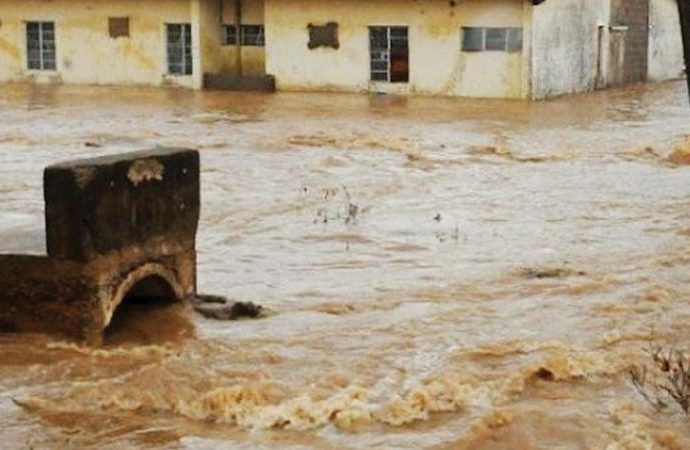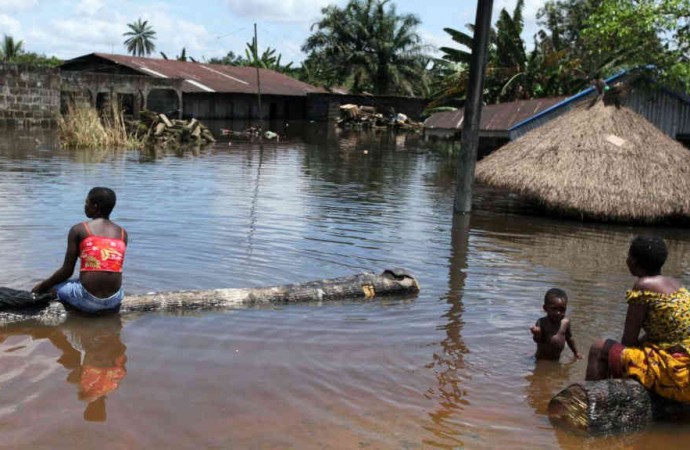By Temilade Aruya
Flooding is a global phenomenon that has continued to constitute a major threat to cities across the world. Universally, flooding comes with lots of miseries with many losing valuables, others losing their lives and some being displaced. Presently, major cities across Asia, Australia and South America are contending with grievous flooding issues.
In time past, millions of people across the world have been affected by deadly floods resulting from torrential rains in China, Australia, Japan, United States of America, Indonesia and Brazil. All of these experiences are largely traceable to global warming-induced climate change which is posing major threats to lives, food security and businesses. Traditionally, the rainy season comes with lots of hazards for Lagos residents.
Expectedly, Nigeria equally has had to face pockets of flooding challenges over the years. For instance, in the early 80s, Ibadan, the second largest city in Africa was almost submerged by the Ogunpa flood disaster which was the result of days of torrential rainfall. Similarly, Lagos once witnessed an agonizing rain on July 10, 2011 when the heavens opened up in an unusual fashion leaving in its trail sorrow, tears and blood.
Presently, the volume of rain being experienced across the country is not only much, but its effects on the citizenry are equally far reaching. This time around, the rains are in torrents as predicted by experts, creating heavy flooding across many states of the federation. In Suleja, for instance, scores of people were recently swept away by an unprecedented flooding that brought the town to its knees.
Quite understandably, in the last few weeks, being a predominantly coastal state, Lagos has been confronted with diverse cases of flooding with areas such as Lagos Island, Lekki and Ajah being the worst hit. As it is, some residents in these areas resort to taking up temporary accommodation in less flood prone areas on the Mainland. Curiously, according to meteorologists, the worst isn’t over yet.
Recently, the Lagos Sate Government confirmed 27 cases of diarrhea outbreak with two fatalities recorded. The State Ministry of Health has been receiving notifications on the upsurge of acute diarrhea diseases in some Local Government Areas which is not unassociated with the aftermath of torrential rainfall being experienced in the State. Naturally, flooding sometimes leads to pollution of water which in turn ends up bringing about water borne diseases.

It is important to stress that in as much as rain is a natural phenomenon that man might not be able to stop scientifically; flooding on the other hand could be human induced, to some extent. The human element of flooding is traceable to the poor sanitary and numerous unfriendly environmental habits of the people. In-spite of the reality of numerous environmental induce calamity frequently witnessed across the world, many of our compatriots are yet to come to term with the necessity of preserving the environment. We are yet to fully embrace a consistent and conscious culture of environmental protection.
It is, therefore, not uncommon to see people engaged in series of unfriendly environmental habits such as open defecation, indiscriminate disposal of waste, building houses on drainages, blockade of canals and drainages with wastes among others. The environment is constantly bombarded with tones of litters, in-spite of several awareness and enlightenment campaigns and programmes via the media, on the dangers of blocked drainages and water ways especially, during the raining season; people still violate standard regulations and routine safety rules meant for the common good of all.
It is sad to realize that in most cases people comply with environmental laws only when they are compelled. This is not right as no sane society could evolve through such act. For instance, the aforementioned diarrhea outbreak that resulted in the loss of two lives in Lagos state is traceable to the carelessness and reckless approach of residents towards the environment as well as personal hygiene. The recent evacuation of 12,600 metric tons of wastes by the Lagos state government from Lagos streets and drains in over 80 locations in the State within 10 days in response to the flood, tagged ‘’Operation Deep Clean’’ testifies to this unwholesome attitude by people.
According to reports, drainages in the affected areas in Oshodi/Isolo, Somolu, and Surulere Local Government Areas were flooded with waste. There were huge river of debris comprising of a mixture of sachet water nylons, plastic bottles and a whole lot of other disgusting rubbish pushed out by the downpour.
Sadly, our unfriendly attitude towards the environment comes at a great cost on almost all facets of life. It resulted into social and economic dislocation, health hazards, and loss of life among other consequences with government in most instances left with little option but to divert public fund and other resources that could have been judiciously utilized for other needs of the people to mitigate its effects.
Floods can traumatize victims and their families for long periods of time. It could have deep impacts with victims suffering long term stress, especially when business and social affairs are disrupted. The incontrovertible fact that people must always consider is that the price of our negligence and abuse of our environment will not only be paid by government, but the general public.
It is, therefore, imperative that the natural and constructed environments are taken as top priorities if the impact of flooding is to be mitigated. The citizens must consider themselves partners in progress with the Government in curbing environmentally degrading habits that aggravate flooding and play their civic role in ensuring a safe, clean and healthy environment for all.
Nonetheless, the Government must not relent on its efforts to sanitize the environment, ensure proper waste management routine and enforce the law on environmental safety.
Aruya is of the Features Unit, Ministry of Information & Strategy, Alausa, Ikeja, Lagos












